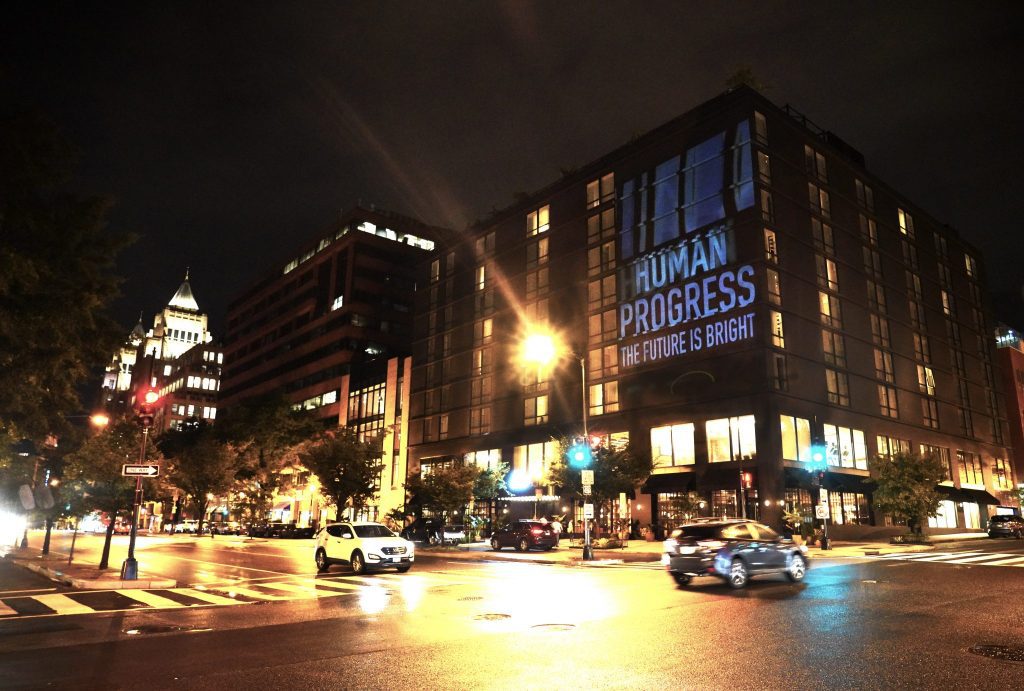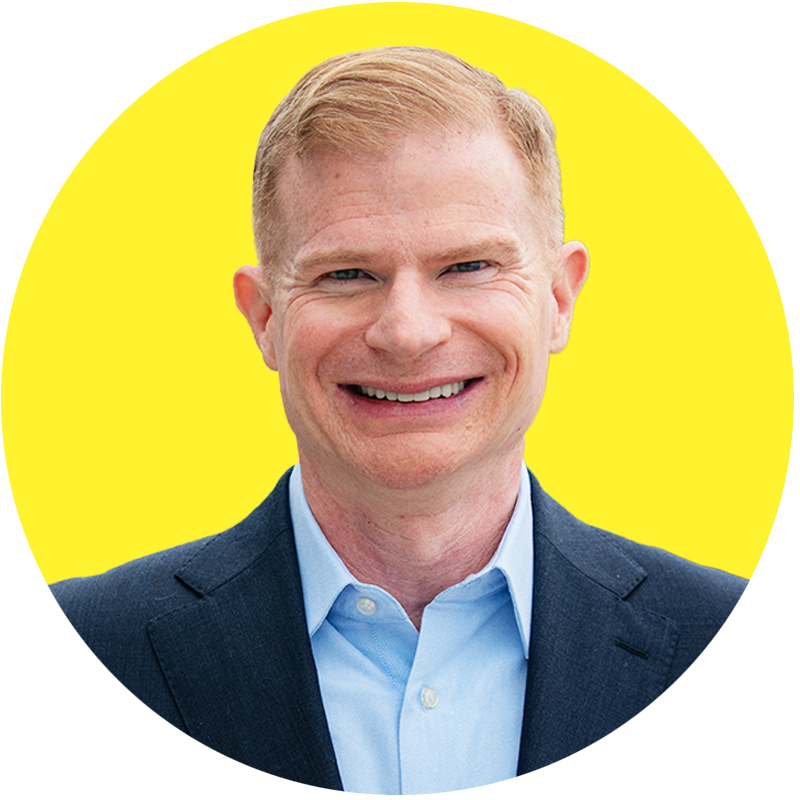How a Performance Artist Is Helping a D.C. Hotel Be a Hub of Culture

Photo Credit: The Eaton Workshop Hotel in D.C., shown here, is pursuing a unique strategy that includes hiring a director of culture. Eaton Workshop
Skift Take
It's not unusual for hotels to talk about how they curate local culture into the experience. But a new hotel in Washington, D.C. is not just talking the talk, but walking the walk with this job.
When a key member of a hotel’s executive team is introduced to a reporter while wearing loose-fitting jeans and a sweatshirt adorned by Piggly Wiggly’s smiling swine logo, one realizes that this is likely no ordinary hotel...nor an ordinary hotel employee. Indeed, Sheldon Scott, director of culture for Eaton Hotel Washington DC, part of the Eaton Workshop brand, brings a unique background to his first true "corporate" job.
Scott comes from the world of psychology and mental health. The forty-something South Carolina native began his career with Boys and Girls Clubs. He then moved to Washington, D.C. working in the fields of substance abuse, sex offender treatment, and mental health.
A few years later, he turned his attention to the arts. “I wanted to scale the process of healing through art," said Scott. He started by performing one-man shows mined from his experiences in the Gullah/Geechee South and in mental health practice. Next, he developed the craft of “sharing narrative through fine arts practices” — adding sculpture, photography, and performance art to his portfolio. By 2015, Scott was a full-time working artist, focusing on performance art, which, he says, “allows for a deeper dive into issues like race, economics and sexuality through abstractions, movement and choreography, along with materials and ephemera to build landscapes using the body.”
Okay, not the typical background for a career in hospitality. Then again, Eaton Workshop is not a typical hotel brand. It's the brainchild of Katherine Lo, the daughter of the chairman of Great Eagle (parent of Langham Hotels). Lo, an entrepreneur and activist, is creating “a global purpose-driven company and creative lab at the intersection of culture, media, hospitality, wellness, and progressive social change.” The vision is to re-imagine a hotel as a gathering place for so-called change makers and creative types. The D.C. property, located on Washington's notably stodgy K Street, opened last fall.
So, how did Eaton Workshop link up with a performance artist? It is notable that Scott didn’t come to the hospitality world totally green. He had worked in restaurant management (a side career borne out of the old artist-as-waiter trope). The restaurants he worked with were located along D.C.’s U Street Corridor, a gentrifying hipster neighborhood that has long been a cultural center for the city’s African-American community.
“Most people who know me think of me as a U Street Corridor person,” said Scott. “The neighborhood is Incredibly diverse. It has historic significance in terms of black culture, music and history...and more recently, it’s been a home for the LGBTQ community. I really appreciated being part of that landscape.”
But thanks to a trusted friend, in 2017, K Street, in the form of Eaton DC, beckoned. When he was approached to take on the role of director of culture, “I thought ,,,you have the wrong Sheldon. This is something I wasn’t interested in at all. K Street is a place with valet services for expensive cars” and is also ground zero for the city’s lobbying industry. “It’s not been known as an inclusive community,” said Scott. But after his first Facetime meeting with Katherine Lo, "I was intrigued by participating in an environment where one of the challenges was to disrupt...starting with thinking about how K Street as it has been traditionally and how it can become something different.”
Scott was the fourth person hired for the new project, coming on board in June, 2017. At first, his main job entailed building the Eaton brand culturally by “creating a connective tissue between the hotel and the community within which it exists" and weaving social progress positioning seamlessly into the brand experience.
One of the first steps was meeting local artists and curating the art collection, which includes several permanent installations. “I look for art that is meaningful and provocative, not just decorative,” he said. For example, in Allegory, the hotel’s speakeasy-style bar, a mural depicts the tale of Ruby Bridges as she goes to school in segregated Mississippi through the lens of Alice in Wonderland. A mosaic mural located on the roof bar is inspired by Liberia, the country founded as a colony for freed American and Caribbean slaves. In the lobby, an installation consists of vintage television sets playing looping footage from political campaigns.
Scott also pulled together an extensive lobby library, along with in-room reading selections, with titles focusing on issues of race, gender equality, and social and environmental justice. The same topics will be projected onto the hotel’s movie screen. There's also an on-site radio station, which, starting in March, will “provide a global platform for dynamic, intersectional dialog and vinyl-inspired world music.”
In addition to curating art, books, films and other programming, Scott has been responsible for curating the founding members of Eaton House, the property’s co-working space. “We went through months of painstaking work to create the right environment for the space, where we can impact the community we are in, where activists in women’s right, social change, race relations and environmental issues can form new relationships and bonds that can deepen their respective work. We want Eaton House to be an ecosystem where people who are making progressive social change can co-work in a place with people who are like-minded. Let’s put them in the same environment and there will be collisions that happen in that space.”
Scott said his aim is to ensure Eaton Workshop is "truthful to its stated mission. In other brands, people put up a list of being inclusive, intentional, but you can’t just say those things and expect them to happen. There's a lot of heavy lifting there, there's tension and friction, shifting and rethinking. The challenge is to continue to do the right work."
To date, the reaction has been positive, according to Scott. “When people first come in, they do so with a fair amount of skepticism. But by the time they’ve finished traversing the space, they’ve shifted to see the real possibilities of this. What that communicates is that the brand is effective. You can intellectualize the concept and the space, but there’s an emotional landscape that is undeniable. We are watching people build a relationship with a hospitality brand. Not just a hotel, a library, a restaurant, a co-working space, but a unique platform, open to the public for world to experience D.C., and for D.C. to be amplified to the rest of the world."


